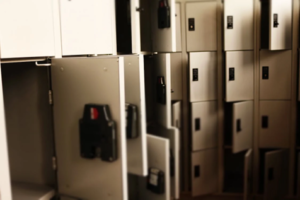 Summer is here, but I know many parents out there are already thinking about the next school year. This is more likely to be true if your child is struggling academically or socially in school and you have concerns about how the next year will play out. Will the next teacher understand your child as well as last year’s teacher did? Will he be with a good combination of classmates whom he likes? She’s moving to middle school, how will she make the adjustment? Do you have to sit and worry all summer about what things will be like in September?
Summer is here, but I know many parents out there are already thinking about the next school year. This is more likely to be true if your child is struggling academically or socially in school and you have concerns about how the next year will play out. Will the next teacher understand your child as well as last year’s teacher did? Will he be with a good combination of classmates whom he likes? She’s moving to middle school, how will she make the adjustment? Do you have to sit and worry all summer about what things will be like in September?
The summer is actually the perfect time to get some things in place and plan for the next school year. The teachers may not be around much, but the administration usually works most of the summer. Support staff such as psychologists and other special education staff are often expected to work a few days or be available as needed if a meeting or assessment has to be scheduled over the summer. Outside specialists are often more available in the summer because camp, family vacations, and the like cause business to slow a bit in the summer. A parent
always has the right to ask for a school planning meeting, even in the summer, but addressing your child’s needs first thing in September is being proactive as well.
Many of us are old enough to remember when children who had special needs were provided with less than sufficient support. Special education classrooms were often ugly, uncomfortable, and inconvenient—near the boiler room, tiny rooms that used to be storage closets, etc. Children who needed help rarely got the individualized, appropriate support that they should have gotten, so they did not meet their potential. Times have changed, and even colleges have come to realize that people with learning disabilities, attention deficits, physical or medical challenges, etc., can become educated and join the workforce. Gone are the days that someone is relegated to menial work because of a speech impediment or physical disability. While schools are still cautious about providing too many services, as it costs districts money, the current model is to intervene early and then try to mainstream and challenge the child enough that he will be weaned from the supports that were put in place. The plus-side is that the child is getting more of a real-life experience to help him function in the world beyond school. The down-side is that children are sometimes declassified sooner than they should be so that services are removed when the child may not be completely ready to lose the training wheels.
In general, school assessments are sufficient, as the support staff knows what to look for and provides focused assessments leading to specific intervention. If your child is struggling and testing is warranted, an assessment will typically include a cognitive measure (or “IQ” test), academic testing, at least a speech and language screening (with more testing if issues come up with language), often an occupational or physical therapy assessment (depending on the issues), teacher reports from the classroom, personality/emotional/behavioral assessments, and a developmental/social history done with the parents. New York State has a certain amount of “classifiable conditions” such as Learning Disability, Mental Retardation, Emotional Disability, Visual Impairment, to name a few, and the testing is focused on whether or not the child fits into one of the categories. There is also the option of “Other Health Impaired,” which can be used when a child doesn’t fit another category, but usually the school wants to see if the child fits one of the more specific classifications in order to give him supports in school.
It’s impossible to describe all of what happens when a child is evaluated without taking up the entire newspaper, but in general, if a child is found to meet criteria for classification, he will be classified, and an IEP (Individual Education Plan) will be written with a specific placement and services for the child, as well as additional goals past what might be indicated on a typical report card. The IEP is a legal document and must be followed. Some children do not qualify for classification but have an issue that has an impact on their school performance. This could be permanent or temporary, such as attention deficits or a serious illness. The child can then get what is called a “504 Plan” which provides accommodations but no special placement or supports. So, a child with attention problems may get preferential seating or breaks, another child may get extra time to take a test, and so on. A child who has a temporary problem, such as an illness or injury, may have a 504 Plan to cover the time when his schoolwork is too much of a challenge (a scribe while recovering from a broken arm, for example).
Sometimes what the school does is not sufficient and does not answer all the questions. Perhaps even with an IEP, the child is still struggling and no one knows why, or the child was deemed ineligible, but is still not making it in class. At this time it is often a good idea to seek further testing, and schools are generally in favor of it (but very rarely pay for it), especially if they feel stymied as well. A private evaluation is often more thorough and may focus on some different things. As a former school psychologist, I want to make it clear that in general the school assessments are professionally done and generally appropriate (there are exceptions of course, as with any profession). However, as I often tell parents who complain that the school didn’t do enough, one year I did 80 evaluations for my school. With 80 evaluations it is not humanly possible to go as in-depth as might be ideal. Also, none of us have every test ever published, especially schools, where the assessments are more focused. Sometimes an issue is missed simply because no one tested for it. Reaching out to a psychologist, speech pathologist, or other professional who does evaluations is a good idea in this case, to try to answer some questions and better fine-tune the IEP. I have a whole closet full of tests, some that the schools have, and some that they generally don’t. And as I said, summer is often a good time to do this, as the child is not in school, and the professionals, during the “summer slump,” may be able to make an appointment and get the work done more quickly.
Doing all these things in the summer, if necessary, can prepare you for the coming school year. You can meet with the school staff during the summer when things are quieter, and make a plan for September. Even if you are not able to meet in the summer, you can meet immediately in September in order to decide if supports should be in place. Waiting until school starts can mean losing a whole marking period, as nothing happens overnight and before you know it that first report card is coming out in November, and the grades are disappointing. In addition, I find that testing children in the summer can be a bit easier, as we are not trying to find time either on weekends or first thing on a weekday to minimize the impact on school and learning time. While a child may not want to miss camp or a fun activity, it is certainly better in many ways than having a child,who is already falling behind, come out of school for several hours of testing and miss whatever was taught during that time.
I often take time during the summer slowdown to catch up on things that build up during the rest of the year. It’s also a good time to assess where your child was at the end of the school year and where he is going next, seeking supports if necessary and getting a head start. It’s not too early to be thinking about the fall, even though school has just ended…kind of a variation on making hay while the sun shines.
[blockquote class=blue]Barbara Kapetanakes, Psy.D. practices child, adult, and family psychotherapy in Sleepy Hollow. [/blockquote]







